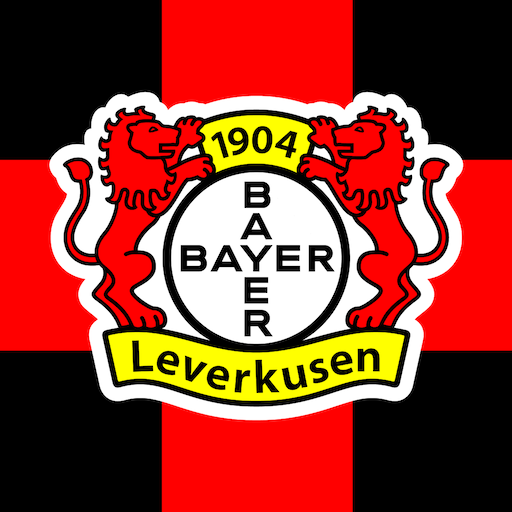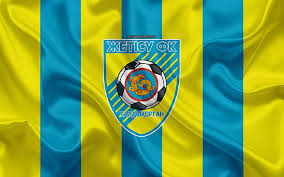FC Bayer 04 Leverkusen, often called Bayer Leverkusen, is one of the most recognizable football clubs in Germany and Europe. Known for its attacking style of play, world-class player development, and consistent presence in the Bundesliga and European competitions, the club has built a strong reputation over the decades. Founded by employees of the pharmaceutical company Bayer, Leverkusen has combined industrial roots with modern football excellence. Today, the team is admired not only for its sporting achievements but also for its contribution to German football culture.
The Origins of Bayer Leverkusen
The story of Bayer Leverkusen began in 1904 when employees of Bayer AG petitioned the company to support the creation of a sports club. From this initiative, Turn- und Spielverein Bayer 04 Leverkusen was born. Initially focused on gymnastics, football soon became the central passion of the members. Over the years, the club transitioned from regional competition to professional football, eventually establishing itself as one of the Bundesliga’s most competitive teams.
This unique origin highlights the club’s connection with the city of Leverkusen and the Bayer company. Unlike many other clubs that emerged from traditional working-class backgrounds, Bayer Leverkusen’s foundation reflects the influence of industrial Germany in shaping modern football institutions.
Home Ground: BayArena
One of the symbols of Bayer Leverkusen’s identity is its home stadium, the BayArena. Located in Leverkusen, North Rhine-Westphalia, the stadium has undergone several renovations to meet international standards. With a capacity of over 30,000 seats, BayArena is known for its intimate atmosphere, bringing fans close to the action on the pitch.
The stadium not only hosts Bundesliga matches but also UEFA Champions League and Europa League fixtures, giving supporters the chance to witness high-level European football. Its modern facilities and fan-friendly design make BayArena one of the most respected stadiums in Germany.
Domestic Achievements in the Bundesliga
Bayer Leverkusen has been a regular contender in the Bundesliga since earning promotion in 1979. While the club has often been close to winning the league title, it is widely remembered for its strong finishes and competitiveness against giants such as Bayern Munich and Borussia Dortmund.
The club’s most famous Bundesliga campaign came in the 2001–02 season, when Leverkusen finished as runners-up after an intense title race. Although falling short of the trophy, that season cemented the club’s reputation as one of the strongest forces in German football. Over the years, Leverkusen has consistently ranked among the top six Bundesliga clubs, ensuring qualification for European competitions and maintaining a reputation for attacking football.
European Success and Near Glory
Bayer Leverkusen’s European journey has given fans unforgettable moments. The highlight came in 1988, when the club won the UEFA Cup (now the Europa League). This triumph remains one of the most significant milestones in the club’s history, marking its arrival on the international stage.
The most remarkable European campaign occurred in the 2001–02 season, when Bayer Leverkusen reached the UEFA Champions League Final. Despite a narrow defeat to Real Madrid in Glasgow, the team’s journey captivated football fans worldwide. Memorable goals, including Zinedine Zidane’s legendary volley, made the final historic, but Bayer’s run to the final remains one of the greatest achievements in German club football.
Leverkusen has since remained a familiar name in European competitions, regularly challenging elite clubs and producing entertaining matches.
Famous Players and Legends
Over the years, Bayer Leverkusen has been home to numerous world-class players who left a lasting legacy:
-
Michael Ballack – One of Germany’s most influential midfielders, Ballack played a key role in Leverkusen’s journey to the 2002 Champions League Final.
-
Ulf Kirsten – A prolific striker, Kirsten scored over 180 Bundesliga goals for Leverkusen, becoming a club legend.
-
Bernd Schneider – Nicknamed “The White Brazilian” for his technical skills, Schneider was central to Leverkusen’s creative midfield.
-
Lucio – The Brazilian defender became a rock at the back before moving to Bayern Munich and later winning the Champions League with Inter Milan.
-
Kai Havertz – A modern superstar, Havertz came through Leverkusen’s youth academy and became one of Europe’s most talented attacking midfielders before moving to Chelsea.
This tradition of producing and attracting top talents has established Leverkusen as a respected club in world football.
Philosophy and Style of Play
Bayer Leverkusen is admired for its attacking philosophy and emphasis on youth development. The club has built one of Germany’s most productive academies, consistently introducing talented players to the first team. Speed, technical ability, and creativity are hallmarks of Leverkusen’s football style.
This philosophy not only entertains fans but also aligns with the club’s long-term strategy of sustainability. By nurturing young players and blending them with experienced professionals, Leverkusen ensures competitiveness both domestically and in Europe.
Rivalries and Identity
Although Bayer Leverkusen does not have the same level of historic rivalry as Bayern Munich or Borussia Dortmund, the club has strong local rivalries. Matches against 1. FC Köln (Cologne) are particularly intense, given the geographical proximity and regional pride. Known as the Rhein Derby, these encounters create a passionate atmosphere for both sets of fans.
Leverkusen’s identity is shaped by its balance between tradition and modernity. While some critics label it as a “company club,” its consistent achievements and loyal fan base have proven its authentic place in German football.
Recent Developments and Future Ambitions
In recent years, Bayer Leverkusen has invested in strengthening its squad with a mix of young prospects and experienced leaders. The club continues to fight for Champions League qualification and aims to add major trophies to its cabinet.
Under modern management, Leverkusen’s ambitions include:
-
Competing regularly in the UEFA Champions League.
-
Winning domestic titles such as the DFB-Pokal.
-
Expanding the global presence of the club’s brand.
The future looks promising, with Leverkusen positioning itself as one of the most exciting teams in German football.
Global Recognition and Fan Culture
Bayer Leverkusen has built a loyal following not only in Germany but also internationally. Fans are drawn to the club’s exciting football, legendary players, and history of competing against the best. The club’s official social media channels and global partnerships help expand its presence beyond Europe, making it a recognized name in international football.
Fan culture at BayArena is vibrant, with passionate support, songs, and choreographies creating a memorable matchday experience. Despite being smaller in size compared to clubs like Bayern Munich, Leverkusen’s fan base is deeply loyal and proud of the club’s achievements.
Conclusion
FC Bayer 04 Leverkusen stands as a symbol of resilience, ambition, and footballing excellence. From its roots as a company team to its rise on the European stage, the club has written an inspiring story. With a strong philosophy of youth development, a history of producing world-class players, and consistent performances in the Bundesliga and Europe, Leverkusen has earned its place among the elite clubs in Germany.
As the club looks ahead, its commitment to attacking football, passionate supporters, and pursuit of silverware will continue to define its legacy. Bayer Leverkusen is more than just a football team—it is a representation of determination, tradition, and modern success.





